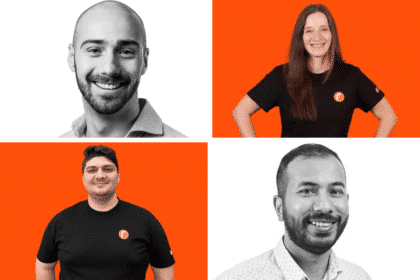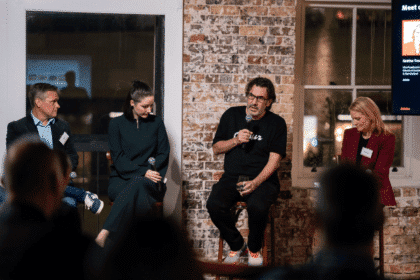Equipment hire and solutions provider Coates has partnered with AFL to increase investment in women’s football and to provide players with career opportunities on and off the field.
The sponsorship aligns with Coates’ commitment to increase female representation within its own business and encourage greater diversity in the wider construction industry.
Building the Workforce of the Future
Construction remains an industry still heavily dominated by men. The ACA (Australian Constructors Association) estimates that just 12 percent of the construction industry are women.
Given labour shortages have been named as the sector’s biggest pressure in 2023, providing more opportunities for women is critical for the country’s infrastructure pipeline.
It’s a problem Coates is keen to address.
It grew the number of women in its nationwide workforce from 18.3 percent in 2021 to 20.9 percent in 2022 and increased representation in female management roles to 20.3 percent, up from 18 percent in 2021.
Coates’ overall target is even more ambitious, however. The equipment hire and solutions provider wants 25 percent of its workforce to be women by 2025, more than double the 12 percent average across the industry.
Investing in the Future of Women’s Sports
Coates has partnered with Australia’s most popular sports league, the Australian Football League (AFL) – signing on as an Official Partner and Official Equipment supplier of the NAB AFL Women’s Competition (the AFLW) and Workplay – the AFL’s industry-first careers platform for AFLW players.
Launched in 2021, the latest edition of Workplay powered by John Holland connects AFLW players with flexible employment, career and educational resources to further advance the opportunities for female athletes to thrive on and off the field.
Coates has also become the exclusive naming rights partner for the premier under-19s Australian Rules competition for girls and boys – the Coates Talent League.
It is also an official partner of both the Newcastle Jets and Perth Glory Women’s A-League Football teams, with the company’s branding to adorn each team’s shorts.
“In recent years the foundation these leagues and teams have built has been exceptional and accelerated the opportunities for elite female athletes across the country,” said Murray Vitlich, CEO of Coates.
“Not only are we proud to support fantastic female athletes and great role models, but we’re also equally proud to help grow the women’s game for generations to come as well as to provide avenues for careers off the field.”
AFL executive general manager customer and commercial Kylie Rogers said the AFL was thrilled to extend its partnership with Coates.
“The AFL and Coates share the same commitment to supporting the progression of women in our respective industries and we’re looking forward to continuing to work together to achieve this both on and off the field.”
“Women’s Sports Show How Quickly Things Can change”
Vitlich is under no illusion that the construction industry needs to change if it is going to attract more women.
It can only do so if it makes “every part of the sector – from the branch to the job site – more inclusive,” he said.
Some ways Coates has sought to make its own business more inclusive is by introducing a flexible working policy and launching the Leadership, Excellence and Performance (LEAP) program designed to identify and develop high-performing, future female leaders at Coates.
Making meaningful and sustainable progress toward gender equality takes time, but for Vitlich, female sports set an important example of just how quickly things can change.
“We see women’s sports as a barometer of how things can change quickly, and the AFLW, the Women’s A-League, and others have done a phenomenal job of pushing elite women’s professional sports to the front of mind of sports fans.
“A few years ago, this wasn’t necessarily the case, but their efforts have changed the habits of these fans across the country.
“It’s a prime example of how quickly things can change if we are determined to change and if we establish the right values to ensure that change is permanent. Construction is no different, and we believe the sector can learn from sport and become more diverse and more inclusive if we are collectively committed to progress,” said Vitlich








